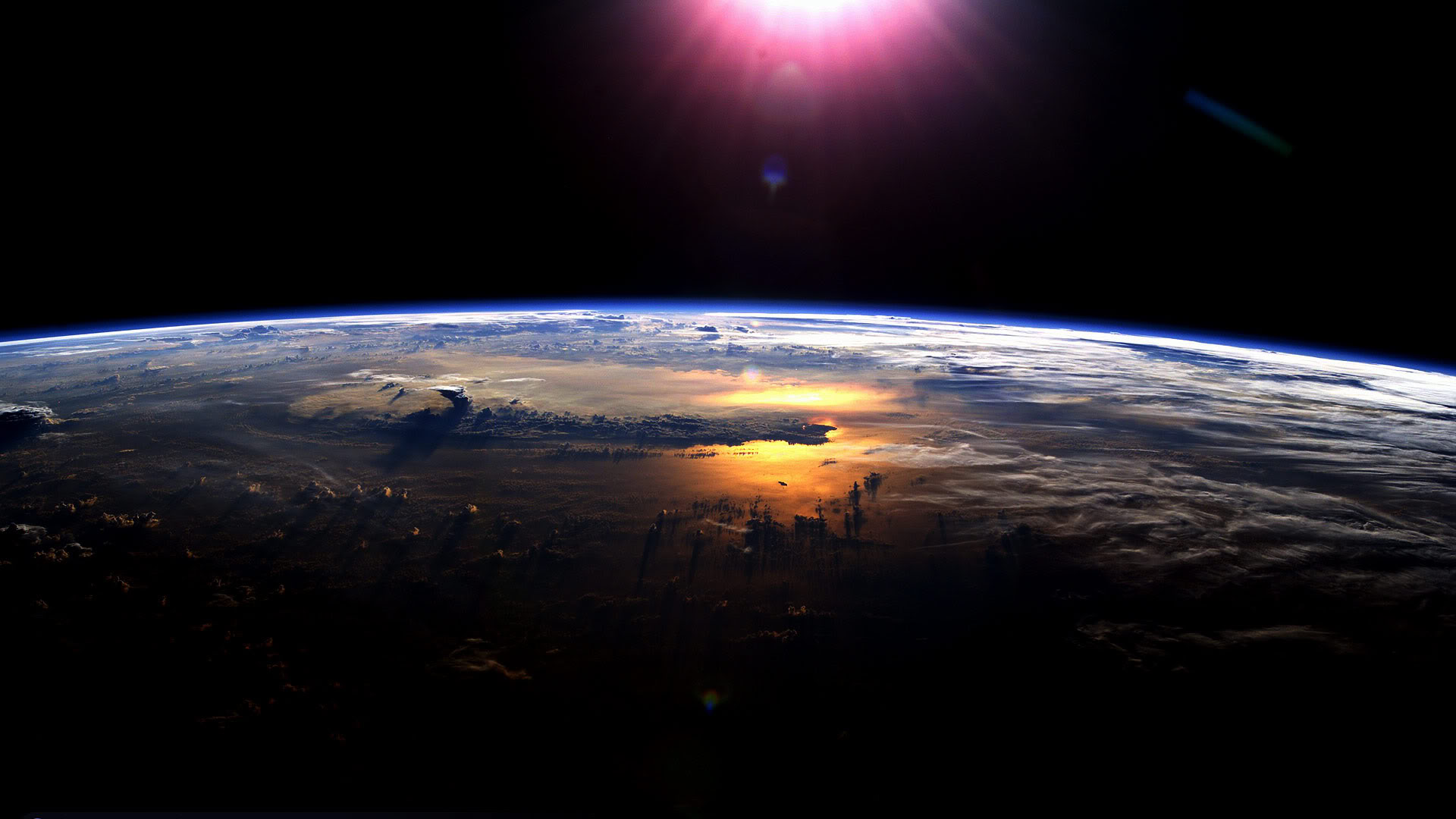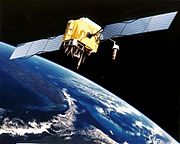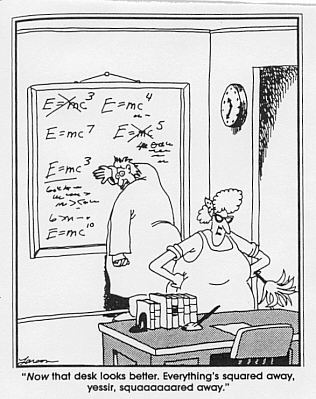
sunearthday.nasa.gov

http://upload.wikimedia.org/wikipedia/commons/8/8d/GPS_Satellite_NASA_art-iif.jpg
These GPS satellites must be accurate to within 20-30 nanoseconds in order for us to receive an accurate measurement of our position. According to Richard Pogge in his "GPS and Relativity", Special Relativity will cause the clocks on orbiting GPS satellites to fall behind by 7 microseconds each day, but General Relativity would cause our clocks on Earth to fall behind the satellite's time by 45 microseconds each day. A microsecond doesn't sound like much, nor does the net 38 microsecond difference in time each day that would occur between our clocks and the satellite clock. However, if that 38 microsecond difference due to Special and General Relativity wasn't corrected for, our GPS locations would be up to 10 km off after only 1 day! (Pogge)

http://www.crownedanarchist.com/emc2/images/larson_mc2.jpg
Cartoon by Gary Larson
<<-Previous Next->>